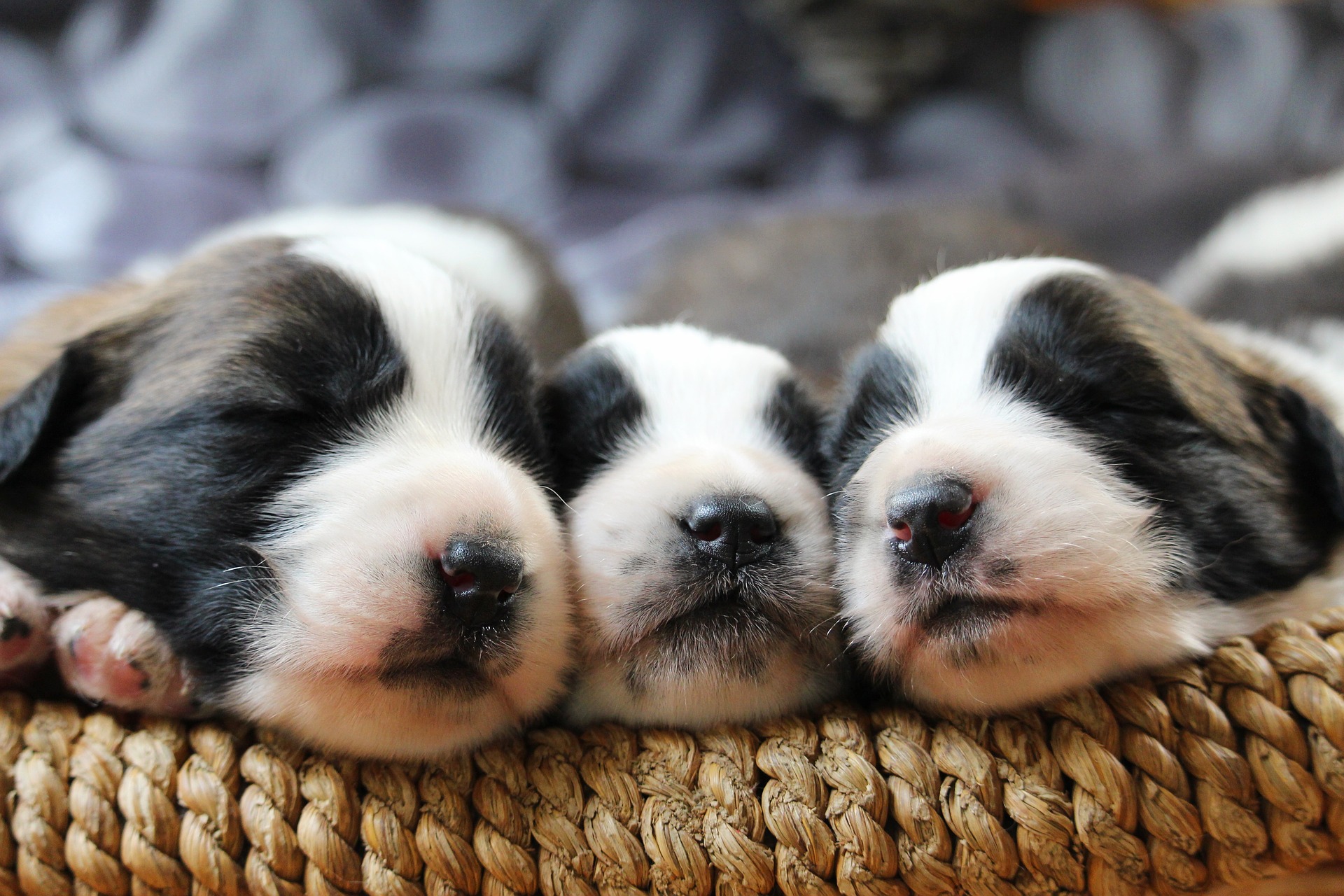A new puppy brings lots of joy into your life, but also comes with plenty of new routines and responsibilities to which you need to acclimate. One of the most important challenges that you will want to accomplish quickly is helping your puppy sleep through the night. The sooner you’re able to get them into a routine and comfortable sleeping for an extended period of time, the less likely it is that you will be sleepy and irritable during the day.
Begin your sleep training the day you bring your new pup home–each day you wait only sets your dog’s progress back further. Have their bed space already prepared, whether it’s in their crate, on a comfy nest of pillows and blankets next to your bed, or at the foot of your bed. You may want to purchase a bottle of dog appeasing pheromone, which simulates calming hormones released by mother dogs and can help soothe a nervous puppy to sleep.
Create a getting-ready-for-bed routine. Our dogs are smart; they can pick up on our personal nightly routine and know that when they see us change our clothes or brush our teeth, it means that it’s almost time for sleep. Young puppies may take a bit longer to pick up on these cues, since the whole house is so new to them. They may also get a bit anxious for nighttime when they see you prepping for bed. To build a happy, cozy routine, be sure to establish their own comforting nighttime ritual–bring them outside to go potty, brush their fur or pet them slowly for a few minutes, then put them in their bed. It may also help to speak with low, soft voices and dim the lights beginning about 20 minutes before you plan to lay down.
Plan for midnight potty runs. Young puppies don’t have the bladder size to hold it through the entire night. You will likely need to take your dog out once or twice during the night, depending on how long you sleep–most can only go three to four hours before having an accident. Since dogs dislike sleeping in places where they’ve had an accident, it’s in both yours and your puppy’s best interest to avoid overnight messes when you can.
Stay strong against whining. Your pup will likely whine or bark at times. During the first few nights especially, it’s critical that you do not come running every time they make a sound. They’ll quickly learn that they’ll receive attention if they make noise, which will make the training process longer and more difficult.
Tire them out during the day. Just like with people, dogs sleep more soundly after a fun, exhausting day. Exercise your puppy and play with them frequently to ensure they are tuckered out come bedtime. While you will not be able to take your pup on walks until they are fully vaccinated, you can still play lots of fun games or get a head start on leash training in your yard.
Gulf Coast K9 Dog Training are experts in puppy training, and we offer puppy classes that will help your new dog to acclimate. Call today for a schedule and obedience class options for puppies.





